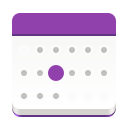

- Лицензия
- GPLv2+
- Project Website
- apps.gnome.org
- Report an Issue
- gitlab.gnome.org


GNOME Calendar is an elegant tool that helps you plan and schedule the coming days and weeks, whether your months are filled with appointments, social events, travel, or other life commitments.
Easily create and manage an unlimited number of calendars and events using GNOME Calendar with infinite scrolling monthly, weekly, and schedule list views.
Integrating the latest GNOME technologies and best design practices, GNOME Calendar is built on top of the mature Evolution data server to manage a large number of events and integrate with other applications. You can add calendars from various online schedulers (such as NextCloud, Google Calendar and CalDAV/WebDAV servers), allowing you to sync events across devices and platforms. GNOME Calendar also supports local and offline calendaring, allowing you to use it anywhere and anytime while traveling (or after the collapse of civilization)
Calendar can be installed in any familiar and convenient way:
Install via GNOME Software
In three clicks 😊
Follow the link install Calendar and confirm the “open application” operation in the browser. The Application Center will open, select the source "Sisyphus" in it, and click the "download" button
Installation via terminal
su -
apt-get update
apt-get install gnome-calendarepm -i gnome-calendarIf you have the Flatpak package, you can install Calendar with one command:
flatpak install flathub org.gnome.CalendarOr using the GNOME Software 🤔
Follow the link to install Calendar, and confirm the "open application" operation in the browser. After this, the Application Center will open, select the source "Flathub" in it and click the "download" button
Create a password for CalDAV on the “Application Passwords” page](https://id.yandex.ru/security/app-passwords) and save it.
In Yandex.Calendar, open the settings of the calendar you are interested in and copy the link from the “Export” section
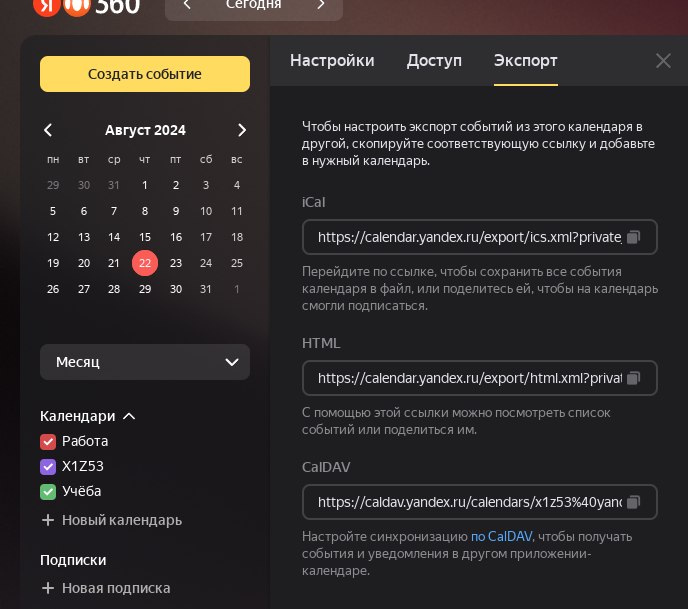
In Calendar, open the Manage Calendars menu
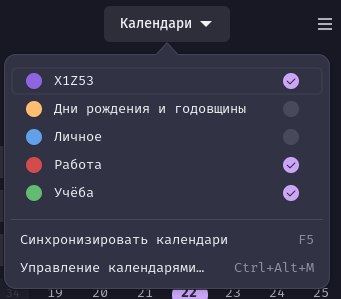
Click on the "Add calendar" button
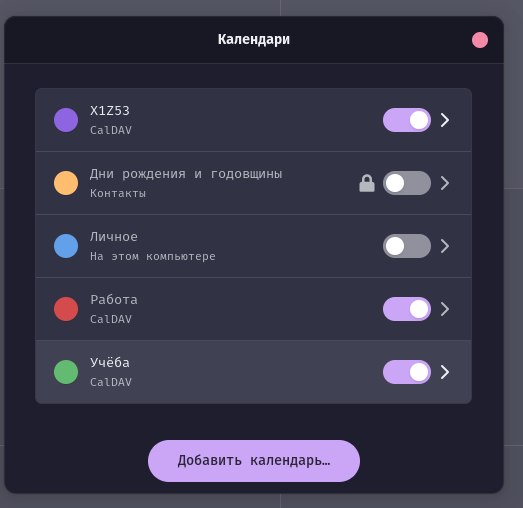
Paste the copied calendar link in the "Import calendar" section
Подсказка
You don't have to enter the calendar name, otherwise a local duplicate will be created
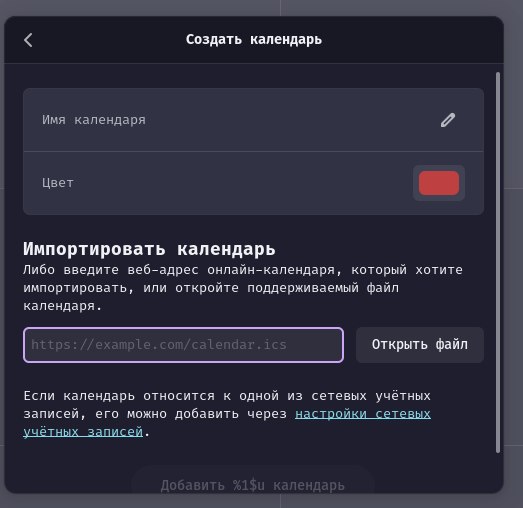
When adding, enter your Yandex account login and the password you created for CalDAV. Enter your GNOME Keyring information again.
Ready! Now events added to Yandex.Calendar will be displayed in GNOME Calendar and vice versa.